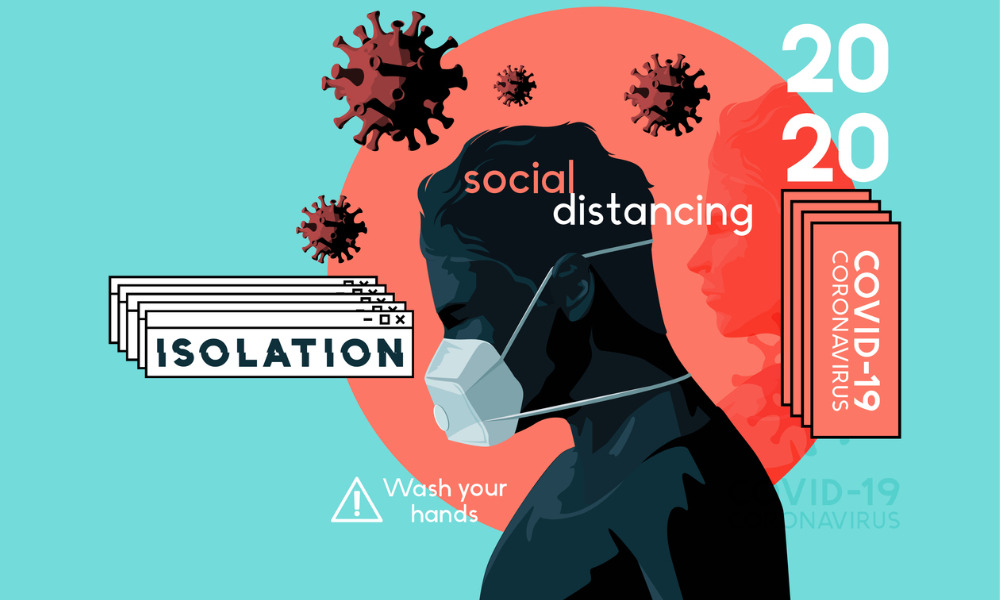Employers have ‘a tremendous opportunity’ to support workers’ psychological needs

Seven months into the COVID-19 pandemic, 48 per cent of Canadians reported needing some form of mental health support, according to Morneau Shepell’s Mental Health Index for the month of October.
Canadians most commonly sought support from family members (24 per cent) and from friends or co-workers (20 per cent). However, far fewer tapped the services of a mental health professional (eight per cent).
Additionally, nine per cent of the individuals who reported needing support have not sought it. This group has, by far, the lowest mental health score of -33.9, against the pre-2020 benchmark of 75.
“COVID-19 continues to take a toll on the mental health of Canadians, and we are now approaching a point in the year when feelings of isolation, stress and anxiety will likely get worse,” said Stephen Liptrap, president and chief executive officer at Morneau Shepell. “The restrictions imposed to combat the second wave of the pandemic and the approaching cold weather are keeping Canadians indoors for longer periods of time. Organizations need to make a conscious effort to check back in with employees and review their mental health strategies, or risk detrimental and long-term impacts on business performance.”
Overall, Canadians’ mental health score stood at -11.4 in October, down from -10.2 in September, based on a survey of 3,000 respondents conducted online from Sept. 28 to Oct. 19, 2020. This decline puts working Canadians back to near the lowest point in April 2020, when the mental health score was -11.7, according to the report.
The survey reported modest increases from April to July, before a decline in August (-11) and a return to July's score (-10) in September.
In October, Canadians’ sub-scores for different categories against the benchmark stood as follows:
- financial risk (2.5)
- psychological health (-2.5)
- isolation (-11.5)
- work productivity (-12.6)
- depression (-12.9)
- optimism (-13.0)
- anxiety (-13.4)
The score for work productivity is a decline that reverses modest gains over the summer, and brings Canadians below the June 2020 level of -12.1. Also, for the second consecutive month, financial risk showed further decline after several months of improvement.
Interestingly, 38 per cent felt that the U.S. election had a negative impact on their mental health, and they reported the lowest mental health score (-16.7) across respondents. In contrast, only nine per cent of employees felt the election had a positive impact on their mental health. They had a significantly higher score (-8.3) than the first group.
A separate report from Leger found that 24 per cent of Canadians reported their mental health and stress levels are currently worse compared to during the first wave of the pandemic in March/April.
Effort and emotional strain
Also, 41 per cent of respondents indicated that they are putting in more effort at work when compared to before the pandemic. These individuals also reported a lower mental health score (-12.0) than those who reported no change in work effort (-11.9) and those who put in less (-9.3).
The increased effort is linked to the emotional strain that makes it harder for people to be as productive as they would have been otherwise, according to the report.
“New workplace dynamics are influenced by what people are experiencing personally, now more than ever. The pandemic has had a significant impact on employees' home, family and personal dynamics and work is impacted as well. Canadians have had to adapt to substantial changes in their routine and concerns about job and economic security, while at the same time finding new ways to keep a healthy work-life balance,” said Paula Allen, senior vice president of research, analytics and innovation at Morneau Shepell.
“At a minimum, each individual psychologically needs several things each day: a sense of accomplishment, social contact, fun, laughter and physical movement. Employers have a tremendous opportunity to encourage and support these healthy practices, which are part of building the resilience needed now and ongoing.”





